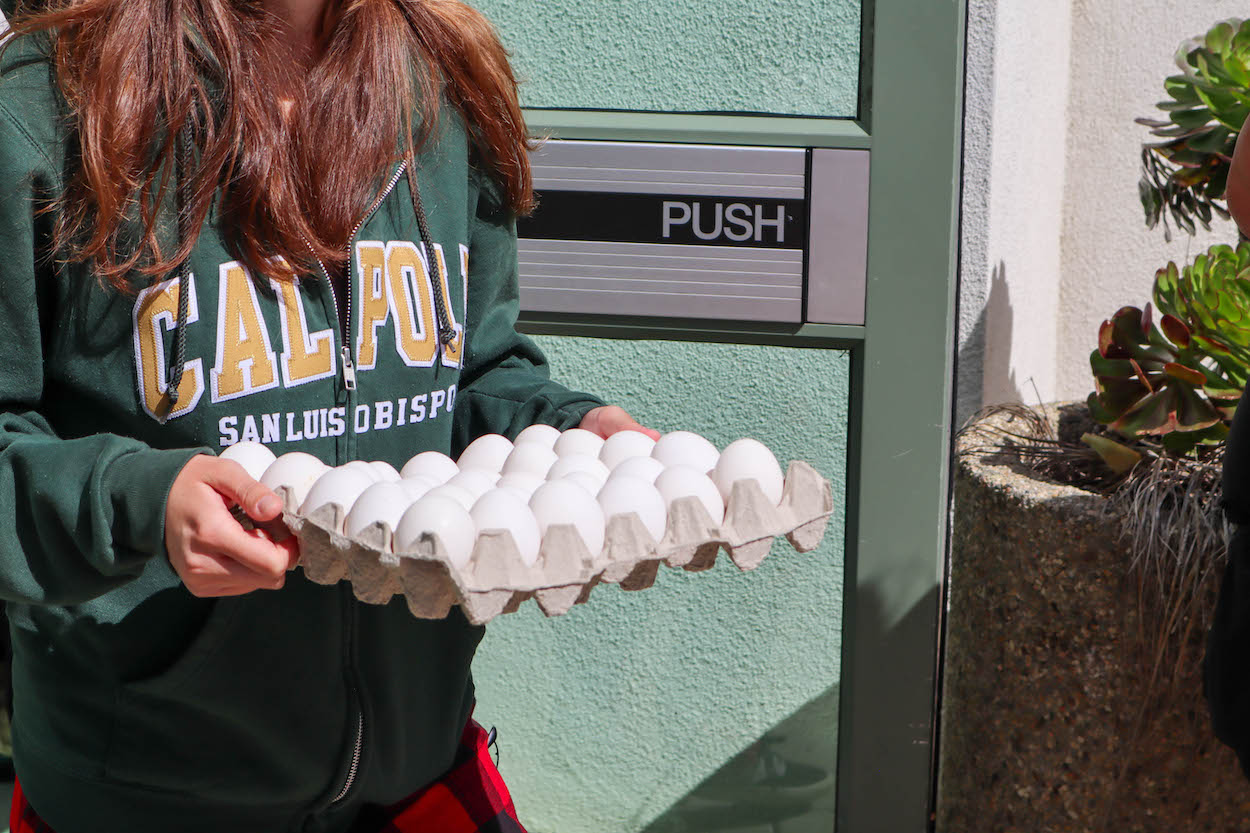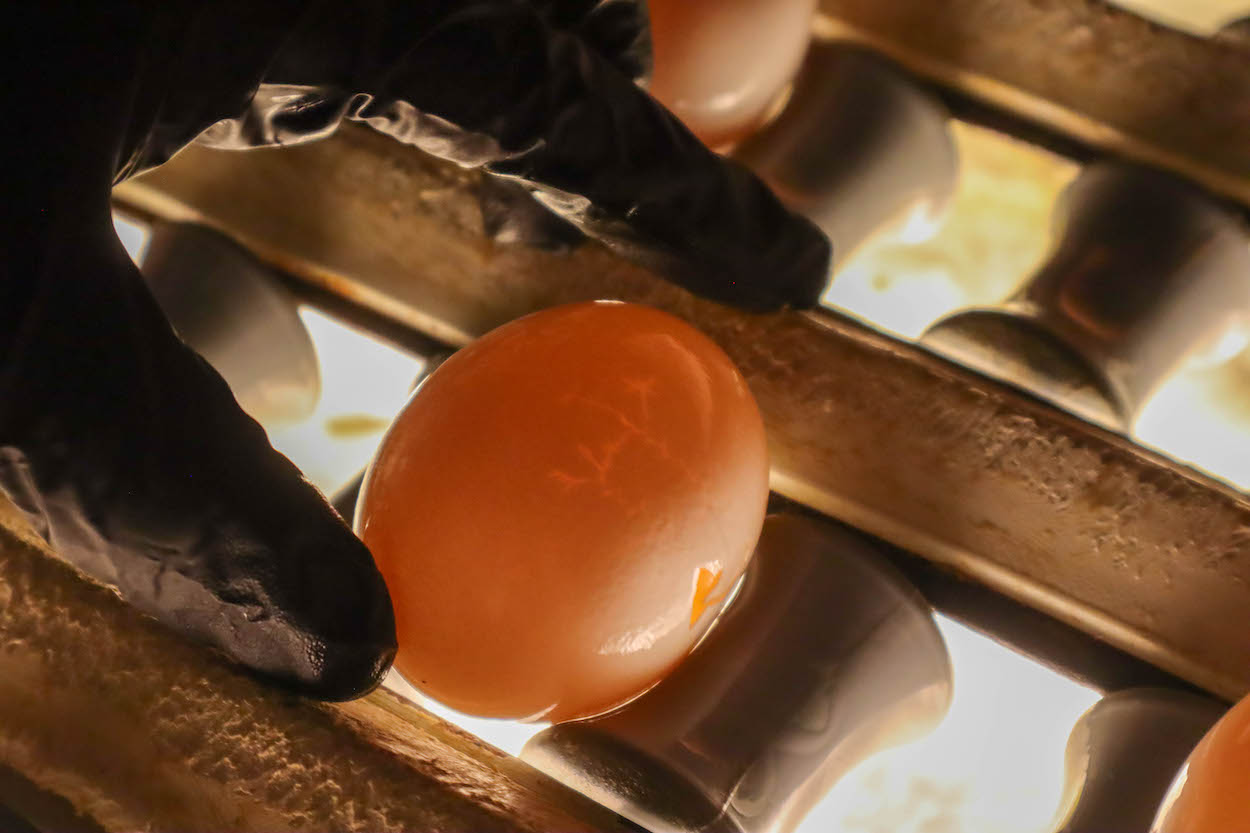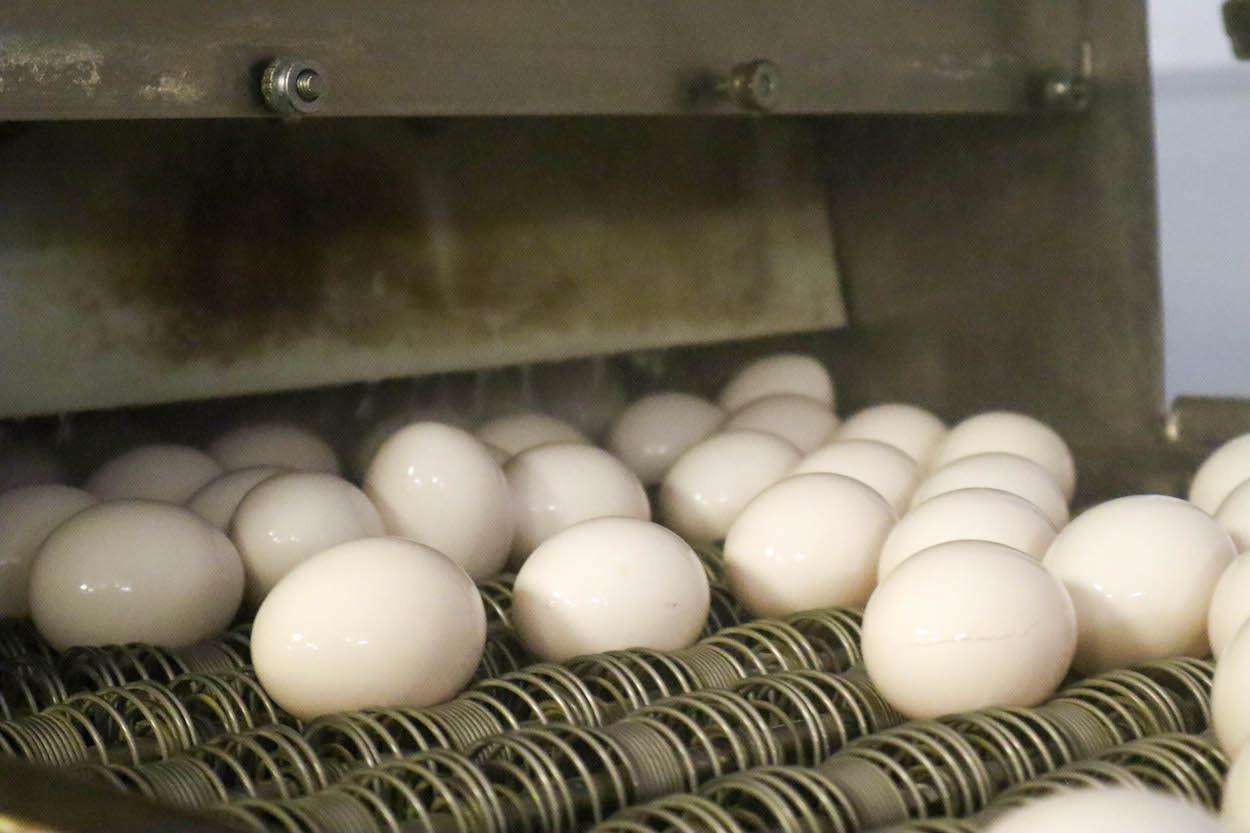The journey of an egg at the Cal Poly Poultry Center

Before an egg becomes a scramble or an omelet, it must make it through a long and complicated journey.
For some eggs, their journey starts at the Cal Poly Poultry Center, where 1,500 cage-free chickens lay approximately one egg each day.
Once a week, a few student workers get to work inspecting, sorting and packing nearly 10,500 eggs. These student workers have the help of facility equipment identical to what is used in the commercial egg production industry.
One of these student workers is agricultural science junior Averie Konefat, who serves as the student manager of the poultry unit.
When packing day comes, someone will stand behind the equipment and gently place each egg onto a conveyor belt. This conveyor belt takes the eggs through a washing station before bringing them down to a candling station.
The candling station is where Konefat usually stands to identify any flaws or imperfections within the eggs. It works by shining light from below the rolling eggs, allowing the workers to see the inside of them.
“For doing the egg inspection process, it’s been very rewarding because even though it’s very like monotonous it’s like rewarding because like I’ve gotten so fast and so good at it, and, just being able to, you know, work with other people and work with machinery that can be kind of scary,” Konefat said.





Some of the imperfections Konefat and other student workers look out for are cracks and blood yokes. In some cases, an egg might have a slight imperfection but still be edible.
According to Konefat, these eggs are what the center calls “checks,” which means they are eggs with small imperfections that could not be sold to businesses. The workers set these eggs aside into flats of their own.
These “check” eggs are held onto until Mondays, which is when they are sold to students, faculty, staff and community members at a discounted price.
“It’s the best deal on eggs that you can get,” Chance Carlton, a plumber at the Poly Canyon Village Shop on campus, said.
He heard about the weekly sale from coworkers and came in to buy multiple flats to feed his family.
In addition to helping with the inspection process, Konefat also runs the weekly sales and says that they are a way for the unit to reduce waste and serve the community.
“It also feels good because I know that things are really tough right now with the economy, and you know, price of foods going up, and so it feels good to be able to like help people in this way,” Konefat said. “Like, they are helping us reduce waste, and then we are also helping give people food for a pretty good price. I just really enjoy talking to people, getting to know about people’s stories, and getting to talk about ag because I’m very passionate about it.”
Konefat says that the goal of the sales each week is to sell out. Otherwise, the eggs will end up in the compost.

